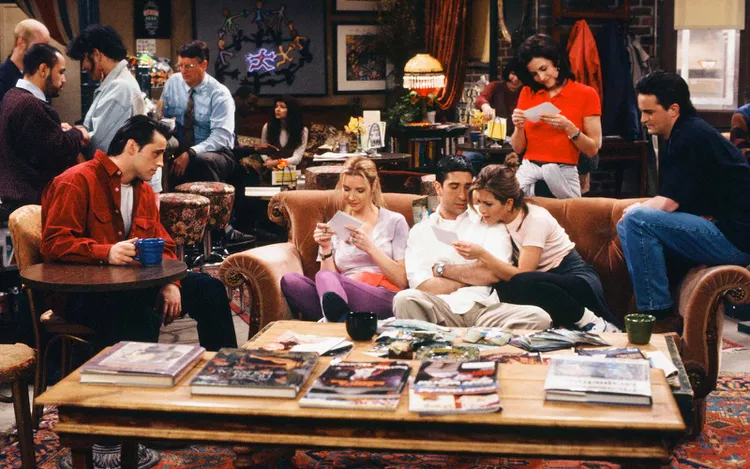By Megan Delaney (Staff Writer)
Have you ever noticed how your favourite sitcom has a distinct location where all the characters hang out, without it being a workplace or someone’s home? From the coffee shop in Friends to the bar in How I Met Your Mother, the importance of a ‘third place’ can be found everywhere. The term ’third place’, first used in the 20th century by sociologist Ray Oldenburg, refers to any space where individuals might voluntarily gather to make connections and exchange ideas.
These places have evolved over time, but are very much alive in vibrant cities such as Brighton. Home to a plethora of cafes, bars, libraries, clubs, parks, and pubs, there is an opportunity to walk through any of these doors and find a space to connect with like-minded others. The university experience is the perfect time to discover your version of a third place, not only with societies and clubs but also in a space where most of the people around you can relate to you. Universities make it easier to bridge the gap between people and allow us to connect, which is what I value most about my experience here.
But what happens once you leave university? Outside of the university bubble, it is much harder to find where you belong outside of work or your home. The lack of community is my main fear for when I graduate. When I speak to my older neighbours who have lived in my town their whole lives, they tell me stories of when they were my age and paint a picture of a vibrant scene away from work or home. In the place of boarded-up shops stood bustling social clubs, evening roller skating sessions or bars to dance in. So, where have they gone?
Austerity has also enabled a generation of lonely young people. A lack of funding for shared social spaces and the closure of everything from libraries to pubs have made it ever more difficult to seek connection. A recent survey by Gallup found that 27% of people aged between 19 and 27 experience significant feelings of loneliness, and this is something I can relate to. For our generation, I feel that social media has compensated for the decline in the traditional third place. Screens have monopolised our leisure time, and scrolling is replacing the art of seeking a face-to-face connection. Social media exists as a tool to foster a sense of connection, but it may also make you feel more alone.
Many people look back on university as the best years of their lives, and I believe the ease of social connections and feeling like you’re a part of something bigger is why. For me, this is the thing I’ll miss the most when I leave. Having a space for like-minded people, where there is socialisation and conversation instead of work and study, is so important. Human beings need to feel a sense of belonging, and having a third place allows people to flourish.
In a world increasingly dominated by screens and solitude, the value of third places cannot be overstated.
Third places are essential, but where can they be found? While Ray Oldenburg outlines specific characteristics he deems essential, the crux lies in their voluntary nature – being somewhere you genuinely want to be. I think a third place should be somewhere you feel at ease in public, a somewhat personal sanctuary for everyone. It could be a sports club, a wild swimming group, a place of worship, or even a weekly pub quiz. Crucially, a third place instils a sense of belonging, with conversation at its core. As the saying goes, “It takes a village to raise a child,” and indeed, it takes a community to nurture an adult.

